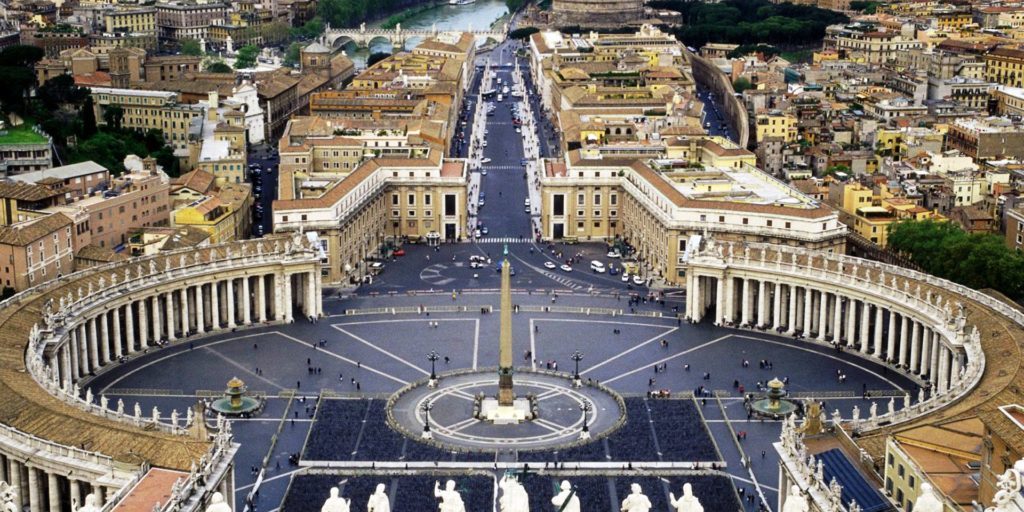
Same Word, Different Worlds: The Roman Catholic Doctrine of Regeneration (Leonardo De Chirico)
In the new issue of Credo Magazine,“Born Again: God’s Sovereign Grace in the Miracle of Regeneration,” Leonardo De Chirico wrote an article entitled, “Same Word, Different Worlds: The Roman Catholic Doctrine of Regeneration.” De Chirico has planted and pastored a Reformed Baptist church in Ferrara (northern Italy) from 1997 to 2009. Since 2009 he has been involved in a church planting project in Rome and is now pastor of the church Breccia di Roma. His Ph.D. is from King’s College (London) and it was published as Evangelical Theological Perspectives on Post-Vatican II Roman Catholicism (Bern-Oxford: Peter Lang 2003). He is Adjunct Director of Istituto di Formazione Evangelica e Documentazione (Padova), and editor of its theological journal Studi di teologia. He is also vice-chairman of the Italian Evangelical Alliance. Together with Pietro Bolognesi and Andrea Ferrari he has been general editor of the Dizionario di teologia evangelica (2007).
 Here is the introduction to De Chirico’s article:
Here is the introduction to De Chirico’s article:
The doctrine of regeneration belongs to the core of the biblical view of salvation and is a term that is shared by all Christian traditions in their respective accounts on what it means to be saved. To be regenerated by God is the act by which God himself re-creates life in an otherwise spiritually dead person. Regeneration is, therefore, the entry point of a saved life. Surveying the biblical evidence, J. I. Packer summarizes it this way: Regeneration “means rebirth (palingenesia): it speaks of a creative renovation wrought by the power of God.” On the surface, the theological meaning of the word is pretty clear and all Christian traditions acknowledge it. However, the difference between them is not so much in the word itself, but the theological “worlds” in which they implant the word in order to make sense of it.
A theological word is not a self-contained unit. Though it carries its own semantic weight, it is also defined by when and where it is found, the web of references which are associated with it, who is involved in enacting it, as well as the practices that precede, accompany and follow it. In other words, regeneration as a word can have one meaning which is common to all, but regeneration as a doctrine may point to different theological directions depending on the way it is construed.
In what follows we will explore how Roman Catholicism understands the doctrine of regeneration, especially as articulated by the 1994 Catechism of the Catholic Church. This magisterial authoritative source is a thoughtful and comprehensive explanation of the Catholic faith and is the best place to come to terms with what the Roman Catholic Church believes about regeneration.
Read the rest of De Chirico’s article today!
Born Again: God’s Sovereign Grace in the Miracle of Regeneration
While doctrines such as election, justification, and sanctification typically receive all of the attention in theological conversations, the doctrine of regeneration is often forgotten. Yet, it is this doctrine that undergirds the entire order of salvation. It is the initiatory change in regeneration that results in everything else, from faith and repentance to justification, sanctification, and perseverance. All of these other doctrines owe their existence to that first moment when God breaths new spiritual life into the sinner’s dead corpse.
Regeneration, or the new birth, was certainly important to Jesus. In John 3 Jesus tells Nicodemus that unless he is born again he cannot enter the kingdom of God! Jesus goes on to highlight the sovereignty of the Spirit in the new birth as well, comparing him to the wind which blows wherever it pleases. This reminds us that since Jesus’ interaction with Nicodemus there has been a long history of debate over exactly what it means to be “born again,” a debate that has preoccupied the best theological minds, including Augustine, Martin Luther, John Calvin, the Synod of Dort, John Owen, Jonathan Edwards, and many, many others. The key questions in this controversial matter are these: Does God work alone (monergism) to create new spiritual life in depraved sinners, or does God and man cooperate with one another (synergism), man having the final say in whether God’s grace will be accepted or rejected? Also, does regeneration precede and cause conversion (faith and repentance), or is the Spirit’s supernatural work in regeneration conditioned upon man’s will to believe? We believe Scripture overwhelmingly supports the former. Anything else would compromise the sovereignty of God and rob him of his glory in salvation.
Join us in this issue as we explore the doctrine of regeneration, a doctrine so important that Jesus himself felt it was the first thing he needed to address on that dark night when Nicodemus approached him with the most piercing of spiritual questions.
Contributors include Matthew Barrett, Thomas Nettles, Jonathan Leeman, Douglas Sweeney, Leonardo De Chirico, Andy Naselli, and Tom Ascol.
Matthew Barrett, Executive Editor

